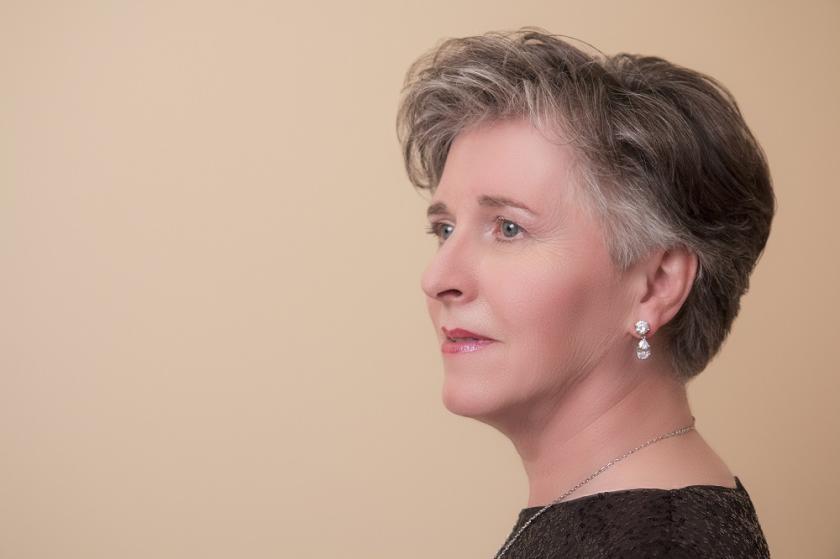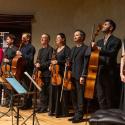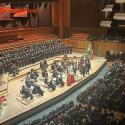National feeling – in music, as anywhere else – depends on choice, not blood. This BBC Symphony Orchestra concert at the Barbican to mark the centenary of Poland’s rebirth as a nation never felt remotely like a feast of aural jingoism. In fact, its most explicit and whole-hearted invocation of Polish tunes and styles came not from a native son but from (who else?) Edward Elgar. He wrote his little-played Polonia in 1915 to aid relief efforts for refugees after the Great War had (yet again) sent German and Russian boots crashing bloodily over Polish soil.
Amid its suitably stirring nods to patriotic songs, to themes from Chopin and Paderewski and (at the finale) the Polish anthem, Dabrowski’s Mazurka, he slips in some expansive lyric touches – cellos and twin harps prominent. They, delightfully, suggest that the Grand Duchy of Warsaw had, unnoticed, annexed the Malvern Hills. Fascinating to hear Elgar in his ceremonial pomp, but marching under someone else's flag.
Conducted by Michal Nesterowicz, the BBCSO programme smartly left the overt banner-waving to an Englishman. Otherwise, the selections avoided over-familiar concert staples (no Chopin) and even more recent fashions – no Szymanowski, which will have surprised, and disappointed, some. Instead, the first-half soloist’s slot went to Paderewski’s own Piano Concerto, performed with evident relish and affection by Montreal-born Janina Fialkowska – something of a specialist in the music of her father’s land.
Finished in 1889, the Polish virtuoso’s showpiece inevitably begs comparison with its near-contemporary peers. Grieg and Tchaikovsky (sometimes even the second Brahms concerto) never feel that far away. It’s notable that the charismatic superstar of Europe and America does not simply write a show-off part for himself and leave the orchestra to fill in a few gaps. Yearning woodwinds temper the foursquare Romantic heroism of the piano in the allegro. Then the lovely slow “romanza” – a welcome discovery for me – weaves a tender dialogue between piano and its partners (especially cellos, oboes and horns) that strikes the ear as a conversation among equals. The closing rondo balances the hint of a stomping peasant dance with a noble brass chorale.
Above all in the ravishing andante, Fialkowska did plenty to make the case for installing Paderewski alongside the late-Romantic pillars of the piano repertoire – were it not for some humdrum and plodding passages that no performer could do much to elevate. In keeping with the programme’s reluctance to play any ethnic card, even the politically-committed Paderewski, who briefly became Poland’s prime minister as independence was restored with the Treaty of Versailles, steers clear of too much “national” flavouring. Yes, the rondo in particular indicates that he has taken a drop or two of the folk-dance spirit of the times. But he’s definitely not Brahms and Liszt.  After the interval came a new commission: Paweł Szymański’s Fourteen Points, a “Woodrow Wilson overture” inspired by the US president’s 1918 declaration of principles for a peaceful post-war world. They included, at no. 13, Polish national independence. Szymanski (born 1954, and present in the Barbican audience to take a bow) adopts and extends the formidable heritage of Polish modernism. From the spooky opening glissandi on the anxious strings we grasped that this version of national awakening comes freighted with a tension and even trepidation that stands musical light-years away from the confident strut of Elgar. Szymański’s suspenseful upward and downside slurs, punctuated by percussion ambushes, suggest hope that always stands ready to be dashed – an abiding motif, perhaps, in modern Polish history. The ominous thump and chug of lower strings towards its climax darkened the texture of a piece that wove a mood of nerve-straining anticipation and dystopian dread – almost Penderecki-style. The Polish freedom Wilson sought remains, in this sound-world, unfinished business.
After the interval came a new commission: Paweł Szymański’s Fourteen Points, a “Woodrow Wilson overture” inspired by the US president’s 1918 declaration of principles for a peaceful post-war world. They included, at no. 13, Polish national independence. Szymanski (born 1954, and present in the Barbican audience to take a bow) adopts and extends the formidable heritage of Polish modernism. From the spooky opening glissandi on the anxious strings we grasped that this version of national awakening comes freighted with a tension and even trepidation that stands musical light-years away from the confident strut of Elgar. Szymański’s suspenseful upward and downside slurs, punctuated by percussion ambushes, suggest hope that always stands ready to be dashed – an abiding motif, perhaps, in modern Polish history. The ominous thump and chug of lower strings towards its climax darkened the texture of a piece that wove a mood of nerve-straining anticipation and dystopian dread – almost Penderecki-style. The Polish freedom Wilson sought remains, in this sound-world, unfinished business.
The BBCSO rounded off their Polish night with Lutosławski’s First Symphony. It kicks off as an uplifting firecracker whose daring, wit and verve allowed the ever-energetic Nesterowicz to showcase the taut, bright and finely articulated playing of the BBCSO. After a harrowing war (he survived as a Warsaw café pianist), Lutosławski premiered the piece in 1948, only to have Poland’s blockheaded artistic Stalinists suppress it for alleged “formalism”. These days, however, the brisk and witty neo-classical allegro sounds like a real crowd-pleaser. Think Stravinsky or even Prokofiev at their bounciest – or even, as jazzy trumpet and flute dance skittishly over lush swooning strings, Bernstein far across the ocean.
Brooding, keening cellos anchor a slow movement that then sets haunted wood and brass off to explore a post-traumatic age of anxiety. This shadowed, spooky quality deepens into an “allegretto misterioso”, the conflictual fragments of a macabre waltz only half-resolved by otherworldly brass. If the dotted rhythmic hubbub of the finale let the BBC players say farewell in scintillating style, all this upbeat bustle still had a manic, even panic-stricken, air. This vibrant, committed account of a deeply expressive piece reminded me that Lutosławski deserves a much higher profile in Britain’s concert mainstream. That, alone, made this non-chauvinistic tour of musical Poland a cause for celebration.













